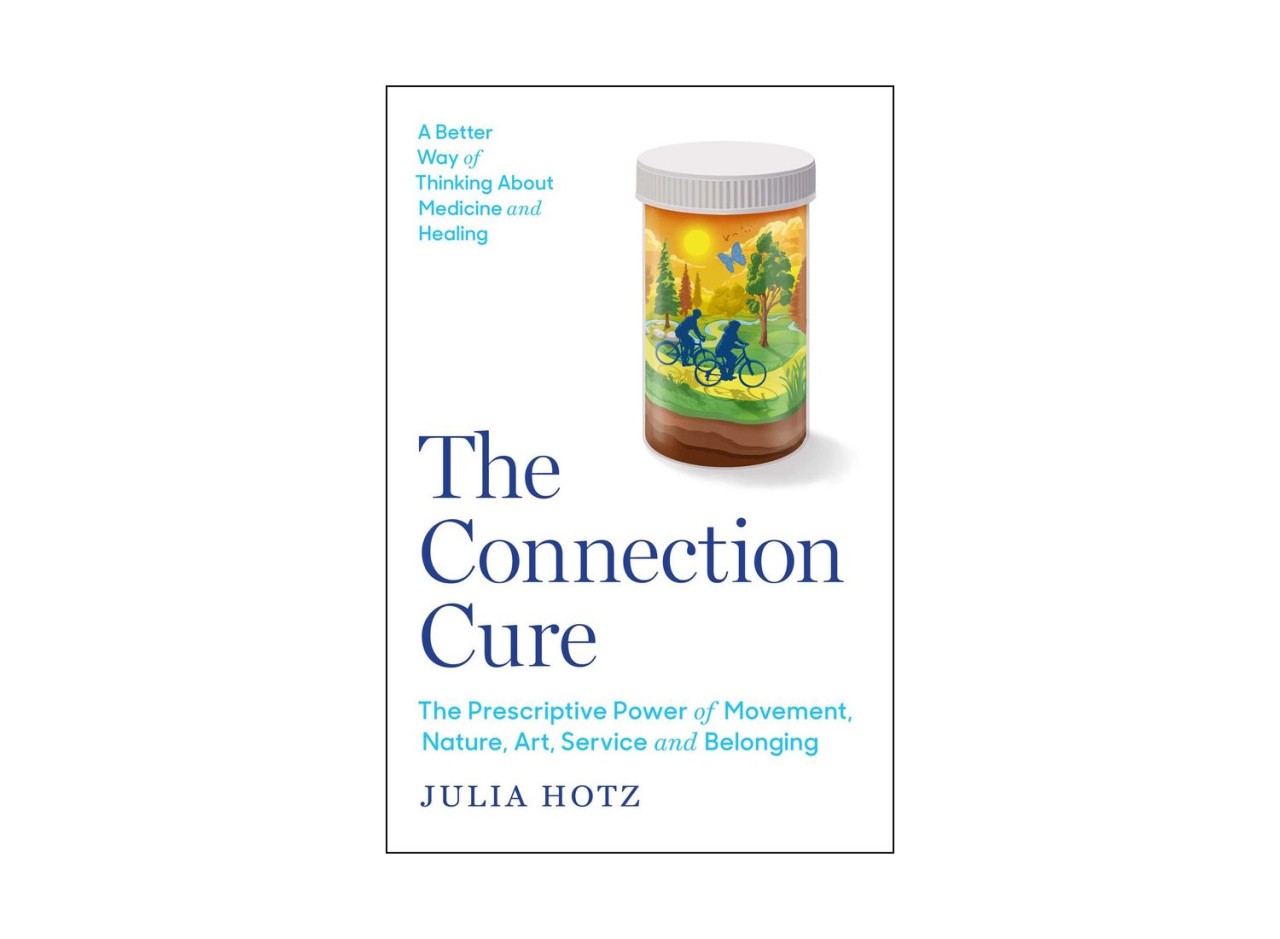The Connection Cure: A Worldwide Social Prescribing Book Reporting Tour to Rediscover What Matters
Six years ago, the same year the UK became the first nation to appoint a Minister of Loneliness, I found myself pacing outside of a Marks and Spencers, waiting to meet my interview subjects: people who admitted they "sometimes" or "often" feel lonely.
I had a clear image of who I'd be meeting. Primed by stats showing the prevalence of loneliness among elderly people, I kept an eye out for the passing pedestrians with frail bodies and mops of white hair.
But instead I met "Abby" — a cheery, lipstick-wearing, kindergarten teacher in her twenties, who had just moved to the area and didn't know how to meet new people. I met "Alex"— a bright-jacket-wearing cyclist in his thirties, who admitted he didn't know where or how to make friends anymore, either. I met "Sanya"—the mom who'd linger at the bus stop in hopes of catching a deep conversation. I met "Laila"— the newlywed who was so lonely that she went to work on Saturdays.
I learned, there and then, that loneliness affects all of us. It's not only about being alone. It's about feeling alone.
When the pandemic happened, more of us began to feel lonely, too. Except it wasn't just loneliness; all around the globe, the pandemic saw more of us feeling more kinds of unwellness: fatigue, boredom, stress, languishing. The pandemic also saw sharply rising cases of formal diagnoses, like depression, anxiety, ADHD, and lifestyle diseases. And the pandemic saw that health care couldn't keep up with this new disease burden: Different kinds of health care systems began reporting the same kinds of problems—doctor shortages, hospital closures, record patient waiting times and back logs in the emergency room, unmet demand for mental healthcare, widespread professional burnout. What was going on?
I set out on a two year, ten-plus country reporting tour to find out. The answer felt urgent: the pandemic proved to be a breaking point for health and health care. But it also marked a path forward. For health workers, community leaders, researchers, and policymakers, the pandemic was the canary in the coal mine: a way for the world to understand just how profoundly social determinants affect our health. And so, too, was the pandemic also a global invitation: for more countries to mobilize around treating social determinants with social prescriptions.
My forthcoming book, The Connection Cure, explores what those different social prescribing systems look like, through the lens of health workers designing them, community organizations implementing them, and patients themselves living out their benefits. These stories introduce you to the human faces behind the evidence that the Social Prescribing Network has spent years gathering. These stories personify what happens when health care flips the script on health to ask the cardinal social prescribing question —shifting, as pioneer Dr. Sam Everington describes, from "what's the matter with you?" to "what matters to you."
For Frank, a loving grandfather and ex-truck driver in Sheffield, "what mattered" was a prescription for a spot in Pedal Ready, a local cycling course, to re-learn a sport he loved as a kid. What mattered were the cheerleaders and accountability buddies he met in his "Chain Gang" of fellow riders. What mattered was the encouragement of his GP, Ollie Hart, who believed Frank could come off the insulin he was prescribed for his type 2 diabetes through lifestyle changes (Ollie was right).
For Akeela, a hardworking health worker and natural-born carer in Bolton, "what mattered" was a prescription to volunteer with a local charity. What mattered was still feeling like she had a purpose, even when her excruciating back pain made her doubt it. What mattered was the listening ear of her link worker, Joanne Gavin, who assured Akeela "there was nothing wrong with her," and believed she could feel physically better if she felt mentally better (Joanne was right, too).
For Nick— a fishing fanatic in Salford, "what mattered" was an invitation to join fellow anglers at Tackling Minds, a local angling group that meets on the river, every Thursday. What mattered was the warm and nonjudgmental vibe of the group's founder, Dave Lyons, who saw Nick not for his diagnoses of ADHD and social anxiety, but simply for his passion for fishing.
For Amanda— a bright-eyed, smiley researcher in Saunton, "what mattered" was her sea swimming lessons with Chill Therapy, and the confidence, talent and joy that her coach, Mike Morris, helped her rediscover. What mattered was the way both swimming and her fellow swimmers gave her relief from her depression, and, as she puts it, "a reason to wake up in the morning."
On this #SocialPrescribingDay, I'm thinking of the people I met six years ago —"Abby", "Alex", "Sanya", "Laila"—and imagining what their lives might have been like if they had a GP like Ollie, or a link worker like Joanne, or a caring community leader like Dave or Mike. I'm thinking about how far groups like the Social Prescribing Network have helped to mobilize these kinds of leaders in these past six years, and dreaming about where the nation, and the world, will be in the next six. And I'm thinking, especially, about Frank, Akeela, Nick, and Amanda —evergreen reminders and human proof points showing what this is all about: reconnecting to what matters to us.
Julia Hotz is a solutions-focused journalist based in New York, with stories in The New York Times, WIRED, Scientific American, The Boston Globe, Time magazine, and more. You can pre-order her book on social prescribing, The Connection Cure, here.
When you subscribe to the blog, we will send you an e-mail when there are new updates on the site so you wouldn't miss them.



Comments